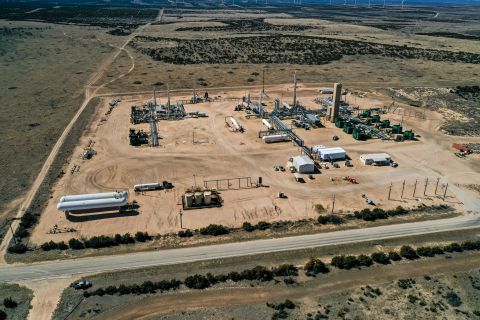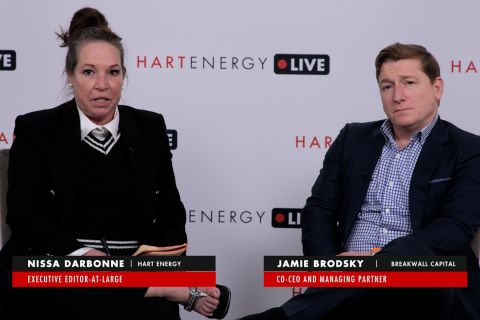Russia's budget deficit could be wider than a planned 2% of GDP in 2023 as an oil price cap squeezes export income, Finance Minister Anton Siluanov said, an extra fiscal hurdle for Moscow as it spends heavily on its military activities in Ukraine.
His comments represented Moscow's clearest acknowledgment yet that the $60 per barrel cap, imposed on Dec. 5 by the Group of Seven, European Union and Australia with the aim of limiting Russia's ability to fund the military campaign, could indeed hit state finances.
Russia last week said price caps on its crude and refined products could see it cut oil output by 5%-7% early next year. But regardless of how deep the cuts are, Siluanov said spending commitments would be met, tapping debt markets and the country's rainy day fund as needed.
"Is a bigger budget deficit possible? It is possible, if revenues are lower than planned. What are the risks next year? Price risks and restrictions," Siluanov told reporters in comments cleared for publication on Tuesday.
President Vladimir Putin had on Dec. 9 called the price cap "stupid", saying the $60 ceiling corresponded to the price at which Russia was already selling, and adding: "Don't worry about the budget."
Siluanov said a cut in energy export volumes was possible, as some countries shun Russia and it looks to develop new markets, a process that will dictate export returns.
"(The price ceiling) is significant to the extent that to those countries that have set the ceiling, there will be no supplies," the minister said. "This means there will be other countries. Yes, logistics (costs) will increase. Discounts may change as a result."
Should volumes shrink, Siluanov said Russia has two sources of additional funding: the National Wealth Fund (NWF), which accumulates state reserves, and loans.
The government has borrowed heavily this quarter after several barren months following Moscow's decision to send tens of thousands of troops into Ukraine, for what it calls a "special military operation".
Russia now expects to use just over 2 trillion roubles ($29 billion) from the NWF in 2022 as total spending exceeds 30 trillion roubles, more than the year's initial plan.
"Since the start of the special military operation, the macroeconomic conditions have changed, inflation has risen and a large volume of resources has been required to support families," Siluanov said.
NWF spending in December could amount to 1.5 trillion roubles. As of Dec. 1, liquid assets in the NWF totalled 7.6 trillion roubles, or 5.7% of Russia's GDP.
Debt burden
Russia is diverting funds to domestic security and defence, which is set to cause funding for schools and hospitals to be slashed next year, and is borrowing heavily to that end.
The finance ministry has raised over 3 trillion roubles at government debt auctions this quarter alone.
It has relaxed restrictions on issuing bonds with floating-rate coupons, which have performed much of the heavy lifting during its recent borrowing spree, but has no specific target for their share, currently at 38%, in the debt portfolio.
"We don't have a strict target as to how much it should be - 40%, 45% or 50%," Siluanov said. "It is clear that today you can only borrow large volumes with floating rates."
Russian interest rates have steadily come down since an emergency rate hike to 20% in February, but above-target inflation is likely to limit room for further cuts next year.
Any hikes, which the central bank said may be needed if inflation factors have a meaningful impact, could leave the finance ministry regretting its decision to take on interest rate risk.
"We see that inflation is coming down and will definitely be at a low level in the first half of next year," Siluanov said. "The question here is the following: do we believe that inflation and rates will come down, or do we not? We have shown by our actions."
($1 = 68.4000 roubles)
Recommended Reading
Midstream M&A Adjusts After E&Ps’ Rampant Permian Consolidation
2024-10-18 - Scott Brown, CEO of the Midland Basin’s Canes Midstream, said he believes the Permian Basin still has plenty of runway for growth and development.
CEO: Breakwall Providing Capital as RBLs ‘Materially’ Decrease
2024-10-09 - Breakwall Capital is stepping in to bridge the gap from the historic days of reserve-based lending, Breakwall Managing Partner and co-CEO Jamie Brodsky said at Hart Energy's Energy Capital Conference in Dallas.
EQT to Cut Workforce 15% Following Close of Equitrans Acquisition
2024-10-02 - EQT Corp. closed its $5.5 billion all-stock buy of Equitrans Midstream Corp. on Sept. 22.
SM Energy Adds Petroleum Engineer Ashwin Venkatraman to Board
2024-12-04 - SM Energy Co. has appointed Ashwin Venkatraman to its board of directors as an independent director and member of the audit committee.
BP Profit Falls On Weak Oil Prices, May Slow Share Buybacks
2024-10-30 - Despite a drop in profit due to weak oil prices, BP reported strong results from its U.S. shale segment and new momentum in the Gulf of Mexico.
Comments
Add new comment
This conversation is moderated according to Hart Energy community rules. Please read the rules before joining the discussion. If you’re experiencing any technical problems, please contact our customer care team.





